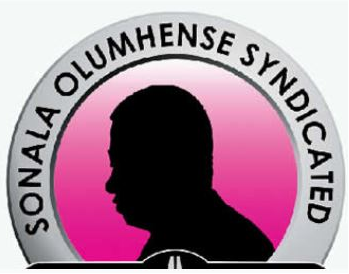Last week, Nigeria Bola Tinubu left for Paris, France, his favorite international stop, on a medical mission disguised as a “private visit”.
It is widely known that he obtains his medical care principally in Paris. Apart from the unnecessary effort to hoodwink the public about the nature of his trip, I do not begrudge him for the attention of his doctors.
It appears he will spend about two weeks away, his spokesman saying he will return “in the first week of February.”
It is however insulting to me, as a Nigerian citizen, that he considered a trip abroad for this purpose to be essential. Remember: it is only eight months ago that his predecessor—who banned medical tourism but thought it was an outrage to be expected that he obtain medical care in Nigeria—commissioned a “state-of-the-art” presidential wing of the State House Medical Centre.
In a press statement, the presidency described “The Presidential/VIP Wing” of the Medical Centre as:
- All of 2,485 square meters on a suspended floor with a basement;
- Housing several specialized departments, and to be staffed by a team of medical professionals;
- Having five consultation rooms dedicated to various specialties such as respiratory, cardiology, ophthalmology, ENT, and general consultation;
- Equipped with “with the latest medical equipment of global standard” such as a specialized X-ray suite; a digital X-ray machine; a diagnostic suite encompassing MRI, CT scan, and endoscopy facilities;
- Having a Catheterization Laboratory, two operating rooms for regular procedures, and facilities for special procedures such as organ transplants; and
- Offering a wide range of specialised medical services, covering advanced diagnostics and treatment.
According to the statement, the hospital also has its own specialized Intensive Care Centre and “a Healing Garden, designed to foster healing, relaxation, and enhancement of overall well-being.”
For this facility, Nigerian taxpayers received from Buhari an astounding bill of N21bn (about $30million in 2021) and the assurance that no longer would a Nigerian leader need to travel abroad for medical care.
That first part was clearly, obviously, and immediately fictitious: there is no evidence that the Medical Centre cost, or could have cost all of N21bn, in addition to previous spending on it of N6.2bn. But Buhari was only one week from formally avoiding responsibility for anything, so who was going to ask him?
The second part was unveiled also as fiction last week when, instead of walking across to the Medical Centre, Mr. Tinubu hopped on the presidential jet to France.
Clearly his faith is in the example, not the words by his predecessor by which vast national resources were recklessly squandered in Europe. And Tinubu’s action was within two weeks of reminding Nigerians that he fully inherited all of Buhari’s assets and liabilities.
Speaking of assets and liabilities, you may have seen a video in circulation, of the Chairman of the EFCC, Ola Olukoyede, in which he says that at the mid-point of the Buhari administration, about ₦2.9 trillion was diverted into personal use by officials.
Mr. Olukoyede actually made the remark during his screening at the Senate last October. “I did a survey between 2018 and 2020 on 50 entities in Nigeria, both human and corporate entities,” he said. “I picked just one scheme, one species of fraud, which is called contract and procurement fraud. I discovered that within the three years, Nigeria lost N2.9trn.”
Keep in mind, he was talking about just one element of fraud, not four, and not five. Three years. A “corruption-fighting” government with a leader of “integrity.”
The EFCC boss continued: “When I put my figures together, I discovered that if the country had prevented the money from being stolen, it would have given us 1,000 kilometers of road, it would have built close to 200 standard tertiary institutions. It would have also educated about 6,000 children from primary to tertiary levels at N16m per child.
“It would have also delivered more 20,000 units of three-bedroom houses across the country. It would have given us world-class teaching hospitals in each of the 36 states of the country and the Federal Capital Territory.”
Just one fraud element. Three years. N2.9 trillion. The figure average one trillion per year, or about eight trillion naira in Buhari’s two terms of “fighting corruption.” All that money is in the hands of now-wealthy officials and contractors and cronies and friends and politicians (some of who are legislators), who are buying mansions and SUVs and sending their children to school abroad and their wives to shop wherever they please in the world.
We cannot compute the larger desecration of values that the Buhari administration inflicted on Nigeria during its rampage, but I urge Mr. Olukoyede, for the record, to extend his analysis to as many areas of our economy and politics as he can.
The question is: what now?
What now? I expect this EFCC chairman to be removed from the job, including by blackmail if—beyond description and diagnosis and example—he does something fundamental. Because that means that many wealthy and powerful Nigerians, including leading figures of the APC political conglomerate, will go need to be saved by corrupt judges.
Now, given that Tinubu has accepted Buhari’s “assets and liabilities,” will the establishment permit such a review of the Nigerian story?
Finally, the insecurity in the country appears to be receiving some attention. First, the police has put in play a Special Intervention Squad (SIS) in the Federal Capital Territory (FCT), in response to the spike in crime there.
The Inspector-General of Police (IGP), Kayode Egbetokun said the squad as comprising trained, well-equipped and highly mobile police officers.
“This initiative is not just born out of necessity, but out of foresight, diligent planning and commitment to enhancing the already robust security architecture of the FCT,” he added, noting the need for efficient security management.
Mr. Egbetokun further observed that the SIS is “envisioned to include a thousand personnel in each state with officers and men from each tactical unit of the force,” to be supplemented by a formidable arsenal of operational assets, including sophisticated arms, drones, and vehicles.
Similarly, the Nigeria military has announced the deployment of its special forces to conduct targeted operations across the country.
A spokesman said on Thursday that the military was conscious of the apprehension occasioned by kidnappings, particularly in the FCT.
I commend the response of the police and the military to Nigeria’s growing insecurity, and I hope that these efforts will be diligently implemented. But not only must the men receive the appropriate tools they need, their use of the equipment must also be monitored and reported. Very often, for example, middle and senior police officials keep to themselves the robust operational vehicles that are needed, while the men on the ground are seen in rickety ones.
I must also remind IGP Egbetokun that we have been here before: in the hands of brutal mobile policemen who took liberties with the limbs and lives of innocent citizens. The truth is that until the police accept that they are supposed to serve and protect, they can never be effective and respected.


 Join Daily Trust WhatsApp Community For Quick Access To News and Happenings Around You.
Join Daily Trust WhatsApp Community For Quick Access To News and Happenings Around You.


